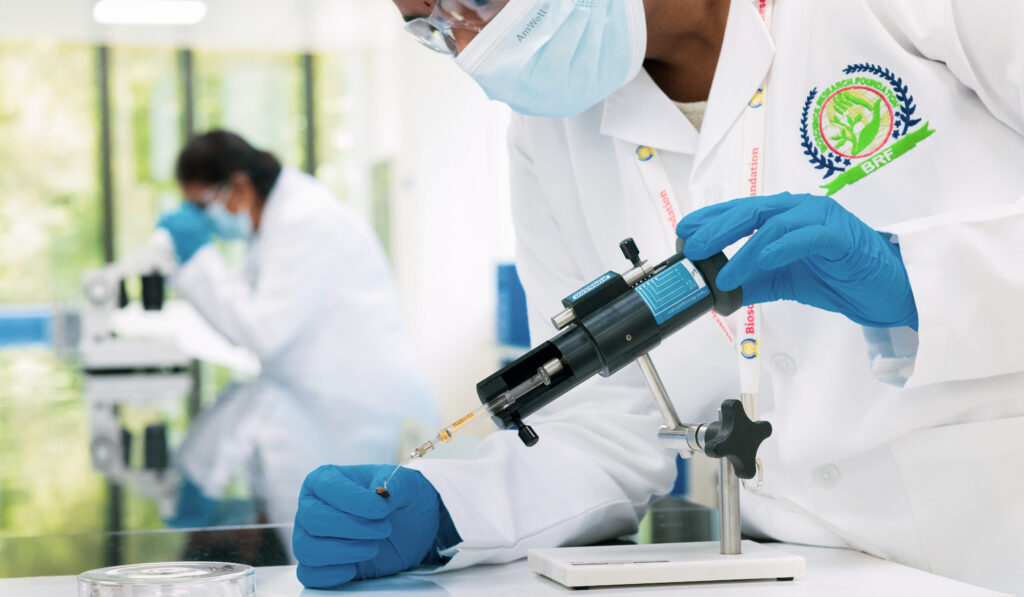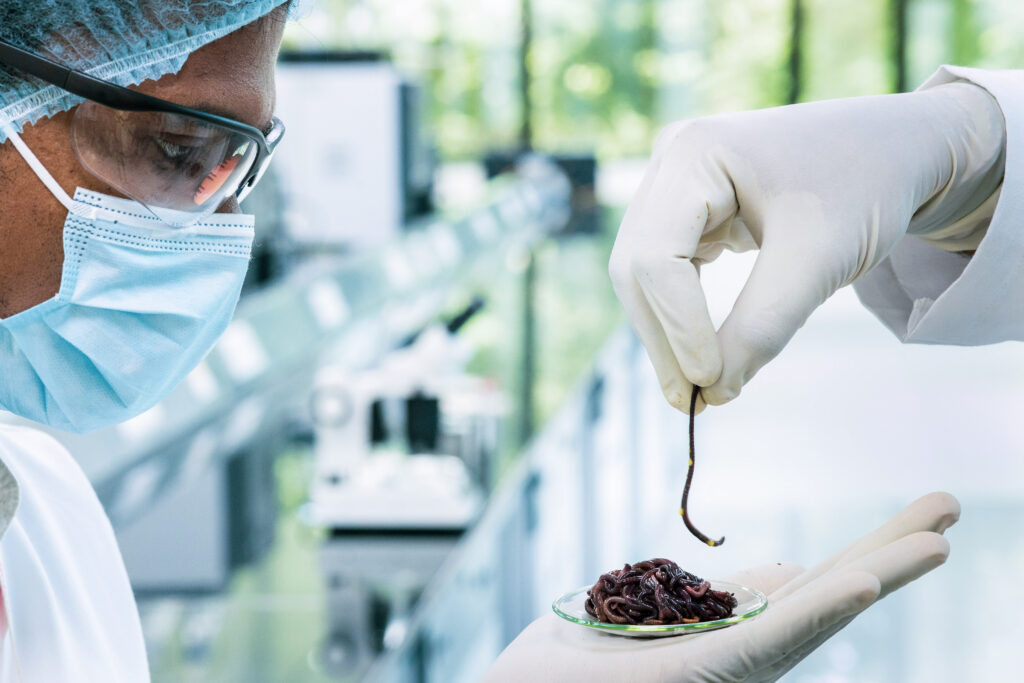Entomology
Advanced Entomology Testing Services
Bioscience Research Foundation (BRF) is proud to offer advanced Entomology testing services to the agrochemical, and biotechnology industries. Our Entomology department specializes in testing the efficacy of insecticides and repellents against various insect species.
At BRF, we have in-house breeding programs for different species of insects, including cockroaches, bed bugs, mosquitoes, ants, termites etc. This enables us to provide our clients with high-quality testing services and accurate results.
Our Entomology department offers a wide range of tests, including contact and residual efficacy tests, dose-response assays, and repellence tests. We have test chambers of different types, allowing us to provide customized testing solutions.
We also specialize in exposure testing, including direct application and impregnated material tests, and can provide data on the residual activity of products over time. Additionally, we have expertise in bioassay techniques, including mortality and fecundity assays.
At BRF, we are committed to delivering reliable and accurate results to our clients. Our in-house breeding programs allow us to provide a reliable and consistent supply of insects for testing, and our advanced entomology test chambers enable us to conduct a wide range of testing services.
Our Entomology department is accredited by Good Laboratory Practice (GLP) ensuring that our testing procedures and data are of the highest quality
Our Lab
Overview of services
- Contact toxicity test
- Residual efficacy test
- Knockdown efficacy test
- Repellency test
- Larvicidal activity test
- Adulticidal activity test
- Fumigant activity test
- Bioassay-guided fractionation
- Bioassays to assess insecticide resistance levels
- Identification and characterization of resistance mechanisms
- Molecular assays for detecting target site mutations
- Efficacy testing of microbial-based biopesticides
- Evaluation of biopesticides for target insect control
- Assessment of biopesticide compatibility with other pest management strategies
- Repellency and attractancy studies
- Host preference and feeding behavior assays
- Oviposition behavior studies
- Quantification of insecticide residues on various substrates (e.g., crops, soil, surfaces)
- Analysis of degradation kinetics and persistence of insecticides
- Evaluation of insect vector’s ability to transmit diseases
- Assessment of vector control strategies and interventions
- Design and development of custom bioassays for specific insect species
- Standardization and optimization of bioassay protocols
- Development and implementation of integrated pest management (IPM) programs
- Design and evaluation of insecticide rotation strategies
- Assessment of the potential risk posed by invasive insect species
- Evaluation of pest management options for containment and control
- Identification of insect species and taxonomic classification
- Morphological and molecular characterization of insect specimens
- Insecticide susceptibility testing
- Molecular assays for insecticide resistance detection
- Bioassays for larvicide and adulticide efficacy
- Evaluation of insecticide-treated materials (ITMs)
- Mosquito species composition and abundance assessment
- Mosquito population monitoring for disease vectors
- Toxicity testing of insecticides
- Behavioral studies for feeding preferences and bait acceptance
- Evaluation of insecticide formulations and delivery methods
- Cockroach infestation monitoring and treatment efficacy assessment
- Insecticide susceptibility testing
- Assessment of insecticide resistance
- Evaluation of insecticidal treatments
- Bioassays for mattress encasements and physical control methods
- Bed bug infestation monitoring
- Toxicity testing and control evaluation for fleas, ticks, flies, ants, termites, and stored product insects
- Identification and characterization of insecticide resistance
- Efficacy testing of alternative pest control methods
- Evaluation of integrated pest management (IPM) strategies


